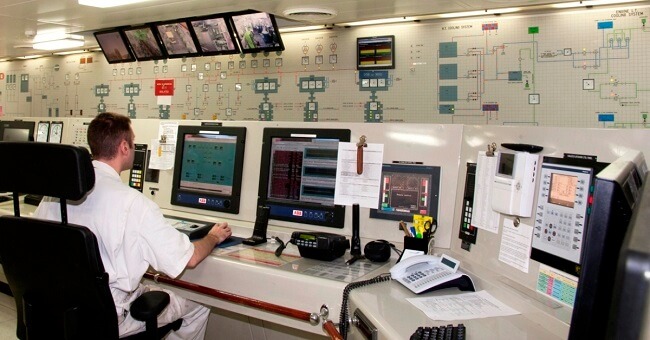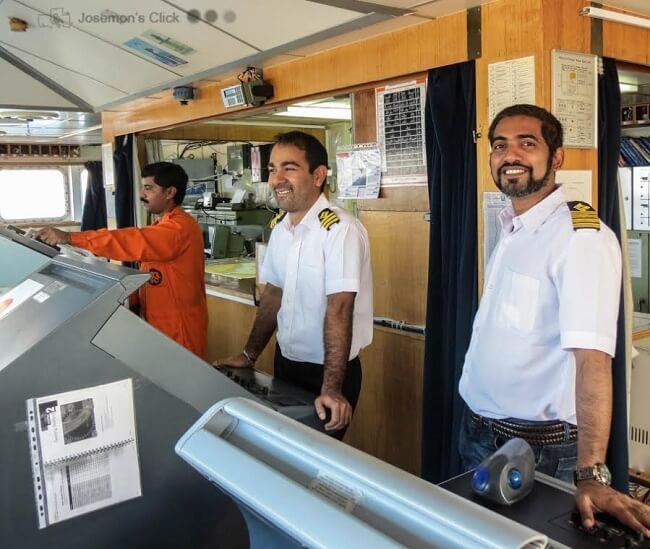

Choosing a career is certainly a difficult task. When doing so, one has to go through a lot of research, consult people and offices involved in the profession, understand the nature of work, and ultimately look for every single scrap of information available.
If the chosen career is Merchant Navy, this task is even more difficult because such information may not come in handy. The mind of an aspiring mariner is often filled with uncertainties, doubts, fallacies and certain myths that prevail in and around the merchant navy profession. In order to make a positive decision to choose Merchant navy as a career, it is absolutely necessary to replace these doubts and fallacies with actual facts.
Please Read This >> 12 Myths People Have About Merchant Navy
The following are 10 of the most common questions asked by fresher aspirants wanting to join the Merchant shipping.


1. I have tattoo/ piercing, can I join merchant navy?
Of course you can. Merchant navy has no restrictions on tattoos and piercings. In fact sailors are the pioneers of nautical tattoo culture.
However, since the maritime academies implement high disciplinary standards and expect officer like qualities, they will be less than friendly to funky piercings and offensive tattoos.
Visible tattoos depicting offensive messages and symbols might also create troubles while traveling abroad as several countries do not encourage them.
It’s always preferred if the tattoos are not easily visible.
2. I have colour blindness, can I join merchant navy?
No, you cannot join merchant navy as an officer with colour blindness. The ability to distinguish colours is so important that both deck and engine department courses require candidates with no colour blindness.
Related reading:
Physical fitness and medical requirements to join merchant navy
How is Ishihara color blindess test?
3. How Difficult is the Pre sea Training and Exams? (India)
Regardless of the stream chosen, pre-sea trainings and exams associated with it are no piece of cake. As it is for every other profession, good dedication and commitment is required. Upon successful completion of cadetship (including onboard training), individuals are required to pass the Certificate of Competency (COC) exams conducted by Mercantile Marine Department (MMD). This requires thorough preparations and outstanding knowledge levels in theoretical and practical sides.
Related Reading:
4 Ways to Become a Deck Officer
How to Become Marine Engineer?
4. How is the College life during pre-sea training?
College life in Maritime academies is definitely enjoyable. But if you are looking for the fun of roaming around in the cities, and late night parties then you might be disappointed. Pre-sea programs are fully residential courses with very professional training. The maritime academies implement and practice semi-military (or full) discipline and activities such as physical training, parade march, swimming, sports, boat rowing, etc. The fun and life will be limited to the college campus. It is possible to go out from college campus during certain specified days and time, however it cannot be certain and depends on the college. The degree of the discipline, rules and regulations vary according to academies.
Related Reading: 5 Things to Keep in Mind Before Joining Merchant Navy


5. Do I join as Officer after college?
No you don’t. After academic pre – sea training, deck graduates join as Deck Cadets or Trainee Navigating Officers and Engine graduates join as Engine Cadets or Trainee Marine Engineer. Once they complete the required sea-time as a cadet they will be eligible to appear for the COC examinations conducted by MMD (in India). Upon completing the examination and receiving the Certificate of Competency, an individual is eligible to join as Deck/Engine officer onboard the ship.
6. How Hard is it to Get a job?
In the last few years shipping industry witnessed an economic gloom which resulted in the lack of demand of maritime professionals especially new-joiners. Even though Industry experts claim that this scenario will change in not more than 5 years of time, presently the lack of job opportunities for cadets is an irrefutable fact. Big shipping companies still hire cadets and sponsor their sea-time upon valid agreements. Many companies also offer completely sponsored in-house trainings. Maritime academies offer placement platforms where companies will come and select cadets.
Related Reading:
7 Reasons Deck Officers and Marine Engineers are not getting jobs
7. How fast will be my career growth?
Career growth largely depends upon an individual’s performance and hard work. Sometimes it also depends upon the company, as some companies encourage early promotions and some others give it sometime. Let’s say for a highly motivated individual with fair environment, it takes at least 8-10 years for a career growth from Deck/Engine Cadet to Master/Chief Engineer. New joiners should be aware of the fact that different promotion levels requires appropriate shore based training and examinations to obtain Certificate of Competency(COC) for the required higher rank. Additionally, a routine up gradation of certain other advanced courses are also necessary.
Related Reading:
A Guide to Merchant Navy Ranks
8. What is the kind of work we do onboard the ship?
As for trainee officers/engineers (cadets) the primary responsibility is to assist respective officers and to learn the job. There will be a ‘designated training officer’ (DTO) onboard who is responsible for cadets training. As the least experienced individuals, cadets should be ready to do any work assigned to him by the DTO.
Deck cadets can expect bridge watches, cargo watches, deck jobs, mooring operations etc.
Engine cadets will be involved in E/R watches, routine maintenance of machineries along with senior engineers.
9. Can I Go out and Roam around in Ports?
Yes, you can. Seafarers will be issued ‘shore pass’ at ports, with which they can go ashore and roam around.
However, It should be clear that there is no such thing like an allotted’ free-time’ for the ship’s crew to go ashore and enjoy. Shore leaves must not be mistaken for a small vacation after a long sailing. Every individual have work and duties even in ports and they will have to make use of their rest hours after work to get a glimpse of the shore. When vessels tend to have longer port stays, it will be more convenient to find enough time to spend ashore without sacrificing rest hours.
Related Reading
Everything You Wanted To Know About Shore Leave
12 Famous Myths About Merchant Navy


10. What kind of entertainment is available onboard the ships?
It is a common belief that seafarers have limited access to the world and lead boring lives onboard. Although facilities can vary from ship to ship, most of the cargo ships have facilities like home theatre with a DVD library, a gymnasium, books and magazine library, swimming pool, video games, indoor games like table tennis, football.
Barbecue parties are another common recreation onboard.
Nowadays, most of the companies provide Internet access onboard helping better communication and active social media participation for sailors. However, their access is very restricted.
These are some of the main questions asked by young, aspiring maritime professionals.
Note – Pre-sea training, exams and career growths are explained as applicable to India.
Maritime training and examinations might be different in other countries.
Do you have more questions? Let us know in comments and we will try our best to give you the answers.
Note: Please do note that the above mentioned rules are pertaining to rules and regulations for Merchant Navy Professionals from India. Kindly refer your country’s official website for questions specific to particular nation.










We believe that knowledge is power, and we’re committed to empowering our readers with the information and resources they need to succeed in the merchant navy industry.
Whether you’re looking for advice on career planning, news and analysis, or just want to connect with other aspiring merchant navy applicants, The Marine Learners is the place to be.